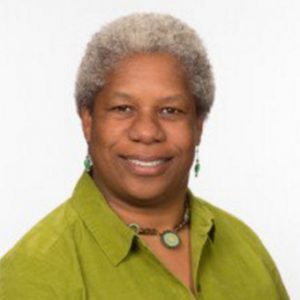The Conference Ombuds: An Independent and Confidential Resource for NPC24 Participants
Confidential. Independent. Impartial. Informal.
The term “ombuds” (pronounced “ahm–buhds”) comes from a Swedish term meaning “a person who has an ear to the people.”
The Conference Ombuds is an impartial, independent, off-the-record resource available on-site to hear concerns confidentially. The Ombuds can assist with identifying options and resources to address conflicts or issues such as harassment, discrimination, or any violation of NPC24’s Code of Conduct and Harassment Policy. This new resource is available to all attendees, staff, exhibitors, and anyone else participating in NPC24.
The Conference Ombuds will be available during NPC24 for individual, confidential consultations. Scheduled or walk-in consultations will be available on April 12 (3:00 pm – 5:00 pm), April 13 (7:30 am – 4:30 pm), April 14 (7:30 am – 4:30 pm), April 15 (8:00 am – 5:30 pm), April 16 (7:30 am – 1:00 pm), and virtual consultations will be available on May 8 (7:30 am – 12:30 pm), May 9 (10:00 am – 5:00 pm) and May 10 (9:00 am – 5:00 pm). The Conference Ombuds Office is located in room 102C in the Minneapolis Convention Center,
You can use the form below to learn more or schedule an appointment with the ombuds.
Watch this video to learn more about the role of the Conference Ombuds:
Here are some Frequently Asked Questions (FAQs) about a conference ombuds function:
- What does an ombuds do?
- How do I contact the ombuds before, during, and after the Conference?
- What does an ombuds not do?
- Who can use the ombuds service?
- What types of concerns are brought to the ombuds?
- What happens when you contact the ombuds?
- What might I gain by contacting the ombuds?
- What authority does the ombuds have?
- What happens to the information provided to the ombuds?
- How does the conference ombuds differ from employee relations or Human Resources professionals?
- How does the conference ombuds differ from a lawyer?
- How does a conference ombuds differ from a mediator?
- What sort of issues and concerns come to the conference ombuds?
- If I have a concern on someone else’s behalf at the conference, may I contact the ombuds, or is this service only for people concerned about themselves?
- How does the ombuds remain neutral?
- Will the ombuds participate in formal meetings?
- How is the ombuds unique and different from other resources at NPC24?
- Are there some things that will not be kept confidential?
- Will the ombuds talk to my attorney or testify for the company or me if I file a grievance or lawsuit?
- Can the user of the ombuds services remain anonymous?
- Does the conference ombuds report to NPC24 on issues they dealt with at the conference?
- What if my question is not listed here?
NPC24 Resources
- Code of Conduct and Harassment Policy
- EDI Commitment
- AICP Code of Ethics and Professional Conduct
- AICP Ethical Conduct Complaint Form
- Ethical Principles in Planning
- Conference Ombuds Visitor Survey
About the Ombuds
NPC24 conference attendees have access to the following ombuds:

Nnena Odim (nnena-ombuds@mwi.org) is an ombuds, mediator, and consultant with MWI. She began mediating in 1997 and was trained as an ombuds by the International Ombuds Association. In addition to her ombuds and mediation training and work, Nnena is the Director and Senior Clinical Instructor of the Family/Domestic Violence Law Clinic at The Legal Services Center of Harvard Law School. She provides experiential training to law students and teaches them how to become effective and ethical attorneys. Nnena has also worked with the Harvard Mediation Program and Harvard Program on Negotiation to provide trainings for students and community members and to supervise Harvard Law School students in their mediation and negotiation studies. Nnena has mediated personal, academic, and administrative issues between students, faculty, and administration in higher education settings, served as a faculty and coach of mediation skills for trainings at Suffolk and Boston College Law Schools, MIT, and New England School of Law, and provided dispute/conflict resolution consultations for various academic and administrative departments in Boston‐area colleges and universities. Nnena has served on numerous panels and speaking rosters for various diverse topics, including self‐care and mental health for students and faculty, establishing boundaries in a professional setting, race and gender, and LGBTQ rights. In 2013, Nnena was a Top Women in the Law award recipient from Mass. Lawyers Weekly. In 2015, she received the Harvard Law School Dean’s Award for Excellence, and in 2019, she was honored by the Harvard Women’s Law Association International Committee. Contact Nnena at nnena-ombuds@mwi.org or complete the confidential web form below.
Contact
- Confidential web form:
- Please complete the form below. If you want to submit the form confidently, you are not required to give your name.
Due to the confidential, impartial, informal, and independent nature of the ombuds function, communication with the ombuds does not constitute formal notice to the APA or NPC24.
The NPC24 Charter for the NPC24 Conference Ombuds was established under a charter approved by the Chief Financial and Operating Officer. A copy of that charter is available here. The charter incorporates by reference the Code of Ethics and Standards of Practice of the International Ombuds Association (IOA) and requires that the NPC24 ombuds adhere to the IOA Code of Ethics and Standards of Practice. The charter, as well as the IOA Code of Ethics and Standards of Practice, contain important information about the ombuds and the manner in which the ombuds functions.


